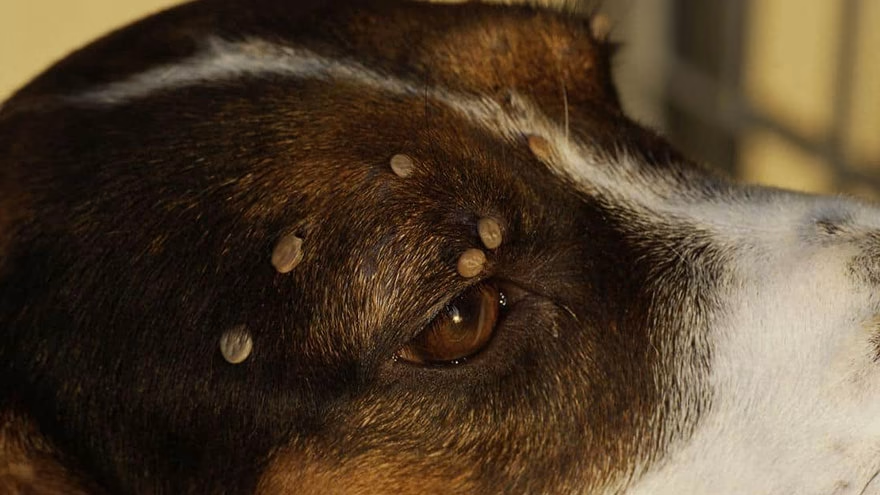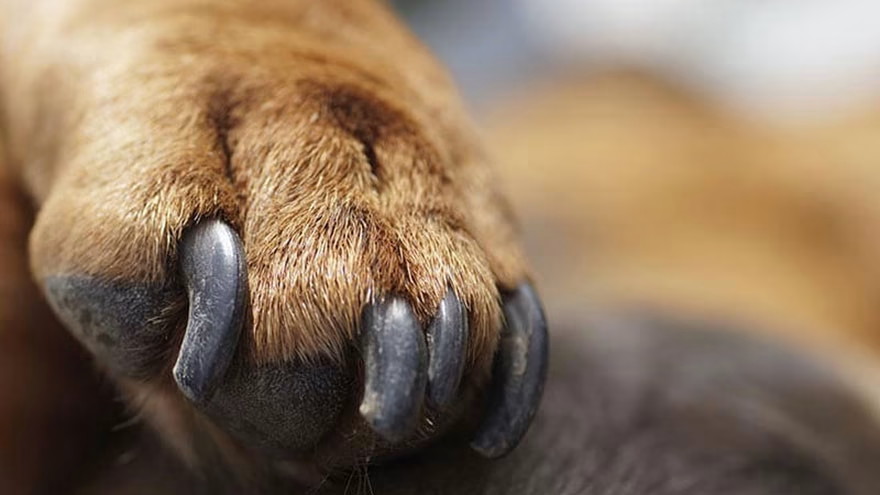Internal mites and parasites can cause discomfort and pain for your dog. In some cases of more aggressive parasites, your dog may become severely ill or even die. According to the American Veterinary Association, you should see your veterinarian if your pet has "diarrhea, weight loss, increased scooting, a dull coat, or if you see worms under its tail, in its bedding, or on its stool." Learn to recognize the most common internal mites and parasites, and visit your veterinarian immediately if your dog has symptoms.

Ear Mites
Ear mites are common in dogs and puppies. They are highly contagious, and can even be passed between cats and dogs. When a dog has ear mites, he will shake his head and scratch his ears. Often, flecks of dried blood will be visible in the ears. Treatment with a veterinary insecticide is necessary to kill the ear mites. According to veterinarian Race Foster, without treatment, the infestation can cause permanent damage to the ear canal and ear drum. Ear mites can be passed between dogs and cats.
Nasal Mites
Although not as common as ear mites, canine nasal mites can also cause irritation and infection in dogs. Nasal mites often cause sneezing and chronic nasal discharge. In severe cases, nasal mites can cause nose bleeds and sinus infections. Veterinarian Holly Nash recommends treatment with oral ivermectin, the same drug used to prevent heartworms. Serious nasal mite infections can cause chronic nosebleeds in dogs.
Heartworms
The most serious internal parasite for dogs is the heartworm. Heartworms are transmitted by mosquitoes. The larvae enter the bloodstream after a bite from an infected mosquito. As the larvae mature, they lodge in the heart and lungs of the host. Minor infections will often cause coughing and lethargy. As the worms multiply, permanent damage to the heart and lungs can occur, and will often lead to death. Heartworm infection is highly preventable. Treatment for heartworm positive dogs is also common and well-tolerated among most dogs.
Tapeworms, Hookworms and Roundworms
Tapeworms, whipworms, hookworms and roundworms are the three most common intestinal parasites in dogs. Tapeworms are transmitted through fleas and lice. Whipworms and roundworms are generally passed as larvae in the feces of infected animals. Hookworm larvae are transmitted through the skin or lining of the mouth. All of these intestinal parasites are highly contagious. However, luckily, all four forms are highly treatable. If you dog has diarrhea or bloody stool, or you see evidence of parasites in your dog's feces, schedule a trip to the veterinarian right away.
Coccidia and Giardia
Coccidia and giardia are less common intestinal parasites. These two single-celled parasites affect the lining of the intestines, preventing an infected dog from properly digesting nutrients. Coccidia and giardia also cause severe diarrhea, quickly leading to dehydration. Left untreated, both parasites can be fatal, particularly in puppies.You Might Also Like :: How to Treat Dog Skin Burns





0 Comments
No comments yet. Be the first to share your thoughts!
Leave a Comment